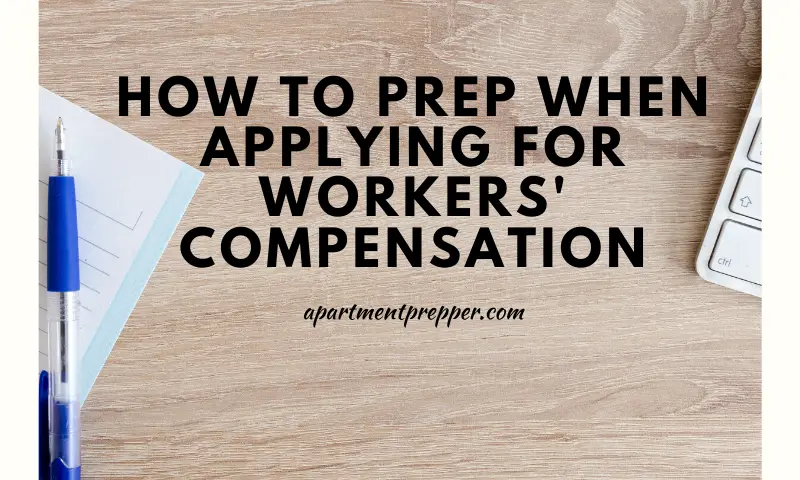(Editor’s note: A family acquaintance recently filed a worker’s comp claim as she was injured on the job. It took months to get her benefits. In today’s guest article we look at tips when applying for worker’s compensation.)
Written by: Kayla Matthews
You got your job because you’re great at what you do, but the future is unpredictable. You never know what’s going to happen day to day. You may go through your daily routine and something comes up that causes an accident at work.
This happens to people all the time, which is why workers’ compensation exists. If you’ve been injured at work, filing for workers’ compensation could help you cover bills and expenses that would otherwise go unpaid while you recover at home.
Applying for workers’ comp can be an intimidating process, but the right prep will make the process easier. Read about how to prep when applying for workers’ compensation so you feel confident when you’re filling out the paperwork and submitting your forms.
Gather Your Company’s Information
Depending on where you work, the application process may look slightly different from other companies or states. The first thing you should look for is a time limit or deadline regarding when you need to file your application. The average time limit is 30 days after your injury, but sometimes people get a year or as little as a few days.
Look up your company’s policy by contacting HR and asking for some guidance or you can research your state’s workers’ compensation official for more specific statewide guidance. They’ll need to know your company’s name and its parent company if applicable. The company will have to provide a policy number, which they’ll do on their own.
Write Down Your Information
In order to make sure that you receive your workers’ compensation benefits, you’ll need to write down your information. That includes all your personal information as well as the status of your job and your family life.
Some of the information will include:
- Your name, date of birth and social security number
- Your marital status and the number of your dependents
- How many years you’ve been with your company and your current salary
This information is sent to your company’s insurance provider or the state’s insurance provider, so your personal details will remain secure. There may be more or less information required, depending on which state you live in.
Federal employees should note that they can access a workers’ compensation website designed specifically to walk them through the process of applying, as it’s different than those filing with a corporation or small business.
Record the Accident
The record of your accident is crucial to deciding how much workers’ comp you’ll receive. You’ll need to include details like:
- When it happened
- When you reported it
- What kind of accident it was
- Where you were injured
- How long you estimate you’ll be out of work
Your application could require more of a detailed description, depending on where you need to file it. After this information is considered in court, you may get financial assistance for medical bills and potentially lost income.
Some people applying for workers’ comp worry about being at fault for the accident. The reality is that fault will be determined through the course of the application, but some states have a no-fault system designed to make things easier on both parties by skipping the process of taking the matter to court.
Plan for the Future
While you walk through the application process, plan for the future. Consider your average weekly wage to calculate your workers’ compensation to get a rough idea of how much money you’ll receive. Take that number to create a budget for yourself for your recovery period. You’ll have an easier recovery if you know where your money is going and how much you’ll receive each week.
The best thing you can do to prep for your workers’ compensation application is to write down as much information as you can. Record the specifics about your accident so you’re ready to describe it in your paperwork. File everything as soon as you can so the process moves quickly and you’re reimbursed for your time.
 Kayla Matthews is a journalist and writer interested in digital technology, safety and data privacy. To read more from Kayla, please visit her blog, Productivity Bytes.
Kayla Matthews is a journalist and writer interested in digital technology, safety and data privacy. To read more from Kayla, please visit her blog, Productivity Bytes.


